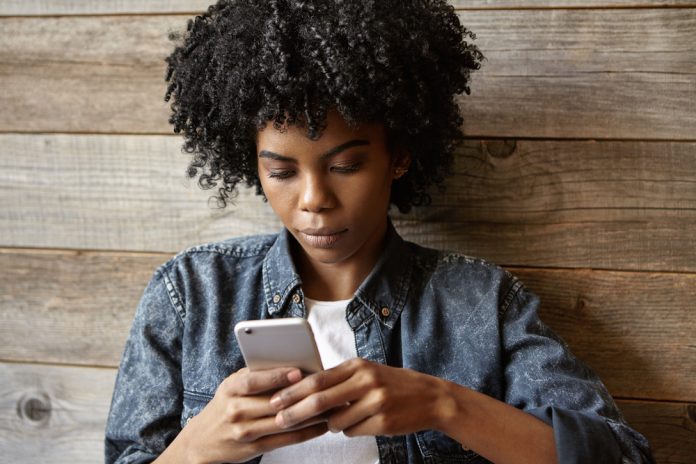The statistics regarding teenage use of social media are frankly staggering. Some studies indicate that teens and young adults spend up to nine hours every day scrolling through various newsfeeds, messaging friends, watching videos, and commenting.
In other words, when teens aren’t in school or sleeping, they’re looking at their phones. Oftentimes, they’ll double up on screen time, doing homework or watching TV on one screen while connecting on social media.
As a result of all this time connecting in a digital world, studies indicate that it can have a profound impact on mental health. This is particularly true for teenagers as they’re in a very sensitive time of their lives. Shaking off bad vibes on social media is harder for them when compared with an adult whose rational thinking part of the brain has fully developed.
The most popular social media platforms for teens include Snapchat, Facebook, YouTube, Twitter, and Instagram. Nearly three quarters of teens have an active Instagram account and spend hours every day logging into the platform and engaging with friends.
Instagram has dozens of features that are highly appealing to the young mind, including Stories that feature exclusive content and then disappear within 24 hours. It’s highly visual as well, which attracts a wider audience.
Recently, studies have emerged indicating that Instagram is bad for teenage and young adult mental health. It compared the health benefits of multiple platforms including YouTube and Facebook, and Instagram rated lowest for self-esteem and mental health.
The studies don’t dive too deeply into the reasons that Instagram scored so low on the mental health index, so it’s hard to tell if the results are conclusive. It’s important to look at multiple factors to determine whether Instagram can have a negative mental health effect on young adults.
Depression and the Nature of Comparison
Those who have analyzed the impacts of Instagram on mental health contribute much of the problem to comparisons. Teens and young adults are working on building up self-esteem, and it’s easily crushed with comparisons to picture-perfect lives on social media.
When logging on, you’re surrounding by beautiful photos of people, places, and things. All you see if that so-and-so has 10,000 followers, a gorgeous home, and flawless skin. What you don’t see is the account holder chose to buy Instagram followers to boost their account, they used filters to get perfect skin, and they only decorated the one portion of the home in the photo. Besides that, Instagram personalities rarely post about the negative things going on in their lives.
Still, with all these unknowns floating around, it’s easy for young people to sink into depression thinking they’ll never measure up. This hormonal imbalance in the brain is difficult to emerge from, even if there are rational thoughts trying to break the emotional state.
Countless researchers have studies the nature of comparison and the depressed thoughts that come from it. One study from the University of Houston showed that it’s not exactly a direct cause, but rather a correlation.
“It doesn’t mean [social media] causes depression, but that depressed feelings and lots of time on [social media] and comparing oneself to others tend to go hand in hand,” said head researcher Mai-Ly Steers.
“This research and previous research indicates the act of socially comparing oneself to others is related to long-term destructive emotions,” Steers continued. “Any benefit gained from making social comparisons is temporary and engaging in frequent social comparison of any kind may be linked to lower well-being.”
Too Much Screen Time Prevents Real Connection
There’s a great deal of research indicating that the use of social media, Instagram included, can reduce one’s overall well-being. What’s more evident is the way that socializing through a phone limits real social connection, a fundamental our minds crave for full satisfaction in life.
With some young adults and teens spending nine hours per day engaging in social media, there’s little time for real, interpersonal connections. Studies dating back centuries show the power of strong social connection for thriving.
Psychology Today talks about a study that proves how those with strong interpersonal connections (in real life, not social media) have a 50 percent increased chance that they’ll live longer. It strengthens immune systems, naturally lowers depression, builds trust, and ultimately enables psychological survival.
Spending too much time behind the screen is likely a huge contributor to feelings of depression and anxiety rather than the sole use of Instagram.
When Instagram Benefits Emotional Health
Let’s not forget about the clear benefits of engaging on Instagram for your emotional health. For starters, Instagram teaches young adults the value of communication. Through trial and error, they can learn the importance of clear, well-thought-out comments rather than hastily written replies.
According to YoViral, it also enables young adults to experiment with creativity and self-expression. Many individuals gain their confidence by using social media if they know how to balance real life alongside the use of the app.
For those who don’t struggle in real life social situation, Instagram can be a means to enhance existing friendships. Individuals can share interesting content, photos of their friendships, and other uplifting content.
Many young Instagrammers are also using the platform to intentionally lift others up when they’re feeling down. They use their profile to get real, personal, and vulnerable, showing others that they’re not alone. They might also share inspiring quotes, give amazing messages, and post powerful photos to lift and inspire.
Moderating Time on Instagram
Ultimately, young Instagram users must learn the importance of balance between real life and Instagram. If they limit their time using the app and increase their time making real-life social connections, many of the emotional barriers disappear.
Young adults can also turn off notifications and be more mindful of their media use. Removing the temptation to check the platform every second of the day can help them become grounded in reality. They can focus more on coming into themselves emotionally without the damaging effects of fake posters.
Find a Home-Based Business to Start-Up >>> Hundreds of Business Listings.

















































